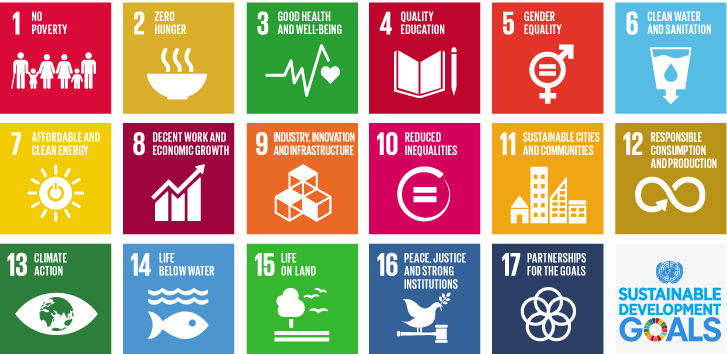
World 100 members took 4 of the top 5 places in the latest impact rankings from Times Higher Education (THE) focusing on the impact of universities measured through the framework of the United Nations Sustainable Development Goals (SDGs).
McMaster University was ranked 2nd, just behind top-placed University of Auckland (the only non-W100 member in the top 5), with University of British Columbia, University of Manchester and King’s College London close behind.
The latest rankings were launched at a conference in South Korea, and are claimed by THE to be a substantial departure from other tables, with the methodology not automatically favouring the ‘superbrands’.
The methodology is complex, with a range of measures attempting to define institutional performance against 11 of the 17 Sustainable Development Goals. The overall table is calculated by combining an institution’s score in SDG 17 (‘with measures partnerships to achieve the SDGs) with its top three scores out of the remaining 10 SDGs included in the analysis.
Universities were invited to submit data and case studies on as many of the SDGs as they were able. A series of metrics were used to evaluate the performance of the university in each SDG, including research data provided by Elsevier.
As with any new ranking, it is difficult to judge immediately the likely impact, beyond providing the opportunity for those institutions that performed well to highlight their achievements.
The fact that W100 members performed particularly well in the Impact Rankings speaks to the quality of the institutions, but also to their being attuned to the opportunities for reputation development.
However, the new ranking has not been without its critics. Some pointed out that many leading institutions did not submit data or evidence and are therefore not ranked. Indeed, some W100 members chose not to take part in the exercise.
More trenchant criticism has come from Professor James Wilsdon, Professor of Research Policy at the University of Sheffield, who has an interesting topical line comparing the proliferation of THE rankings to the Marvel Cinematic Universe.
Professor Wilson argues that instead of introducing a new ranking, THE could incorporate data on performance against SDGs in their main table: “At a stroke, this would achieve what many critics of rankings have called for, by diversifying and pluralizing measures of global ‘excellence’”.
No doubt the arguments will continue, but a positive view on the new impact rankings comes from King’s College London, with Vice Principal for Service Professor Jonathan Grant indicating that the metrics challenge universities to think about their societal contributions and encourage them to be responsible employers.
The W100 Annual Conference at The University of Manchester will feature a workshop on THE rankings, including the Impact Ranking, with data scientist Mark Caddow.

